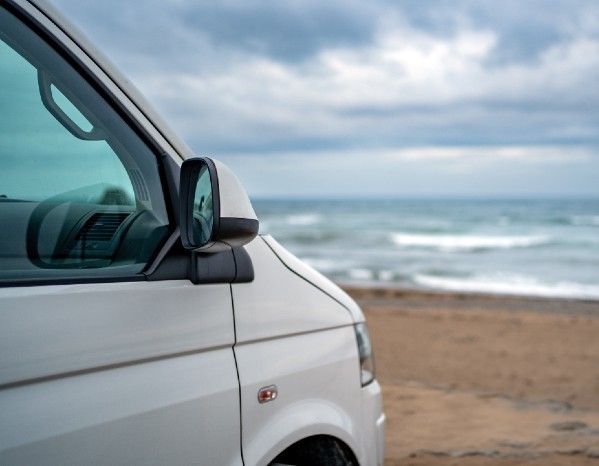
Here we look at some of the most important things that have changed since 1 January this year, in line with the UK’s exit from Europe.
1. Selling or buying with the EU is more complex
There is an agreement between the UK and the EU that goods will not be taxed when they cross borders and that there will be no limits on the number of goods that can be traded.
It is to be noted though that businesses based in England, Wales, and Scotland (for Northern Ireland, see below) will have to make customs declarations as if they were dealing with countries elsewhere in the world. Please see our blog, Ensure you prepare for Brexit for more information on this.
Special licenses and certificates will be required for some products, including plants, live animals, and some foods. Others will require specific labelling. The government guidance on this can be found here.
While the UK government has chosen to delay (by six months) the enforcement of full controls, the EU will be carrying out checks from 1 January.
2. What about Northern Ireland?
The UK and EU have agreed to keep a border, without checkpoints, between Northern Ireland and the Republic of Ireland.
Northern Ireland will continue to follow many of the EU's rules, meaning that lorries can continue to drive across the border without having to be inspected. Instead, however, some new checks will be needed on certain goods arriving into Northern Ireland from the rest of the UK.
Food products such as meat, fish, and eggs will need to be checked to ensure they comply with EU standards.
To reduce any potential disruption, supermarkets have been given an initial three-month grace period during which the rules will not be enforced on the food they bring into Northern Ireland. Certain meat products have a longer, six-month period. What happens after this is unclear and will be the subject of future negotiations.
An agreement has also been reached to eliminate tariffs (extra charges on goods) for most trade between Great Britain and Northern Ireland. Some new paperwork will be required from 1 January.
3. Travel to Europe has changed
From January, UK nationals will be able to travel without a visa to Schengen area countries but only for up to 90 days in any 180-day period (this includes most EU nations and Iceland, Norway, Switzerland and Liechtenstein). In addition, the following will be required:
- At least six months must be left on a passport, except for trips to Ireland
- Travel insurance with health cover is needed. The current EHIC card will be valid until its expiry date and will be replaced by a new scheme, but the government still advises you to get travel insurance with health cover
- The guarantee of free roaming for mobiles has ended
- If travelling with a pet, an animal health certificate must be obtained from a vet at least 10 days before the journey starts
- Separate lanes from EU, EEA and Swiss citizens must be used at border control.
Because of the COVID-19 pandemic, travellers from non-EU countries (now including the UK), are currently not able to visit the EU except for a certain number of essential reasons.
4. The return of duty-free shopping
When the UK was a member of the EU, unlimited amounts of alcohol and tobacco could be brought back from an EU country without paying any duty at the border, if duty had been paid in the country where it was bought, and it could be proved it was for personal use.
Now, duty-free shopping is available when travelling to the EU, but there are limits to the amount that can be brought in duty-free. This also applies to arrivals from non-EU countries.
The amount of allowable duty-free tobacco and alcohol will increase, however. So, for example, it is be allowable to bring in 18 litres of still wine and 42 litres of beer.
5. New rules for UK citizens who want to move to the EU
For those currently living in an EU country, certain protections under the withdrawal agreement are in place. However, the rules of a specific country should be checked. For example, a UK national living in France will need to obtain a new residents' permit.
There is no longer an automatic right to be able to move to the EU to live, work, study or retire. A visa is required if going there for any reason other than tourism.
People planning to move to Ireland will be largely unaffected.
6. New rules for EU citizens living in the UK
For EU citizens (or those from Iceland, Liechtenstein, Norway, or Switzerland) living in the UK by 31 December 2020, rights remain the same until 30 June 2021. However, the situation after that date should be checked as UK citizenship may be required, or an application made to the EU Settlement Scheme.
Due to the Common Travel Area arrangement, Irish citizens’ rights will not change.
7. There is a new UK immigration system
There is now a new points-based system for foreign citizens (except Irish nationals) who want to move to the UK. People who want to locate to the UK to work, live or study will have to apply and pay for a visa.
- It will cost £348 to apply for a student visa from outside the UK, or £475 to extend or transfer one from inside the UK.
- An application for a skilled worker visa will cost between £610 and £1,408 per person, unless an individual has skills for which the country has a requirement.
People applying for visas will also have to pay a health surcharge of £624 per person per year unless they are healthcare workers.
To check how you and/or your business may be affected by the changes, you can use the government’s Brexit Checker to find out.
The information provided in this blog is for general informational purposes only and should not be considered professional advice. As far as we are aware, the content is accurate at time of publication. Torgersens assumes no responsibility for errors or omissions in the content or for any actions taken based on the information provided.

.jpg)


.jpg)



